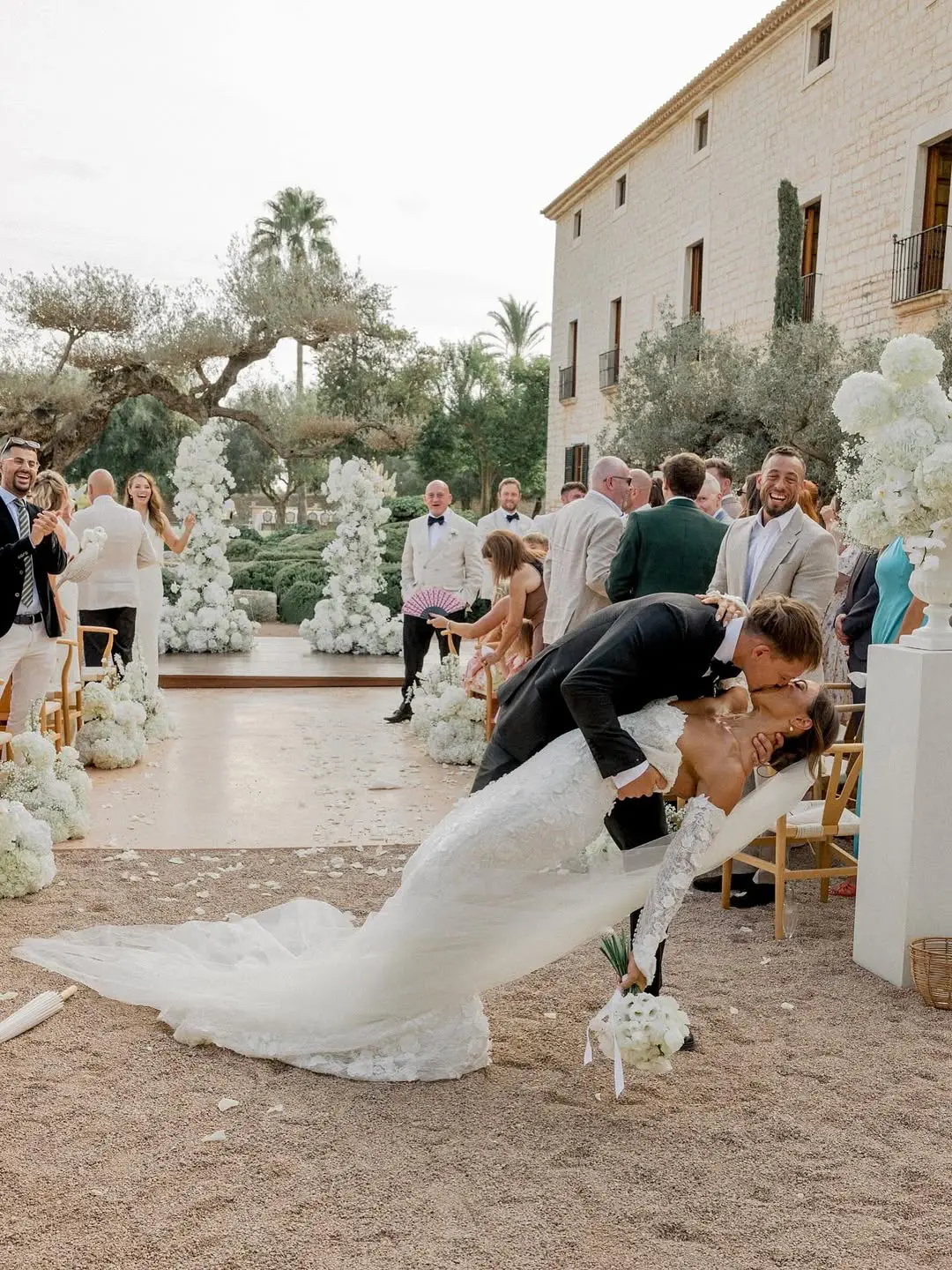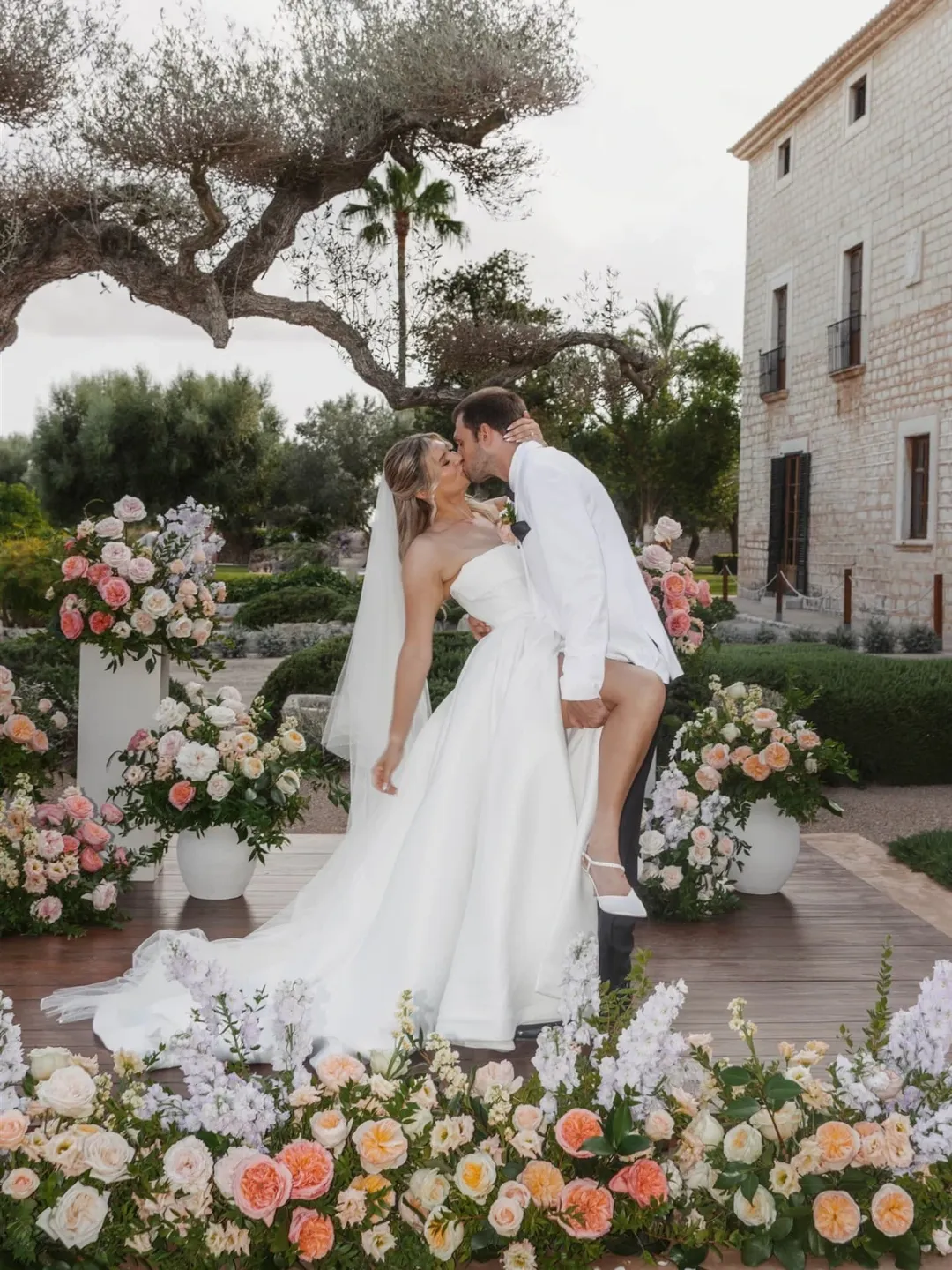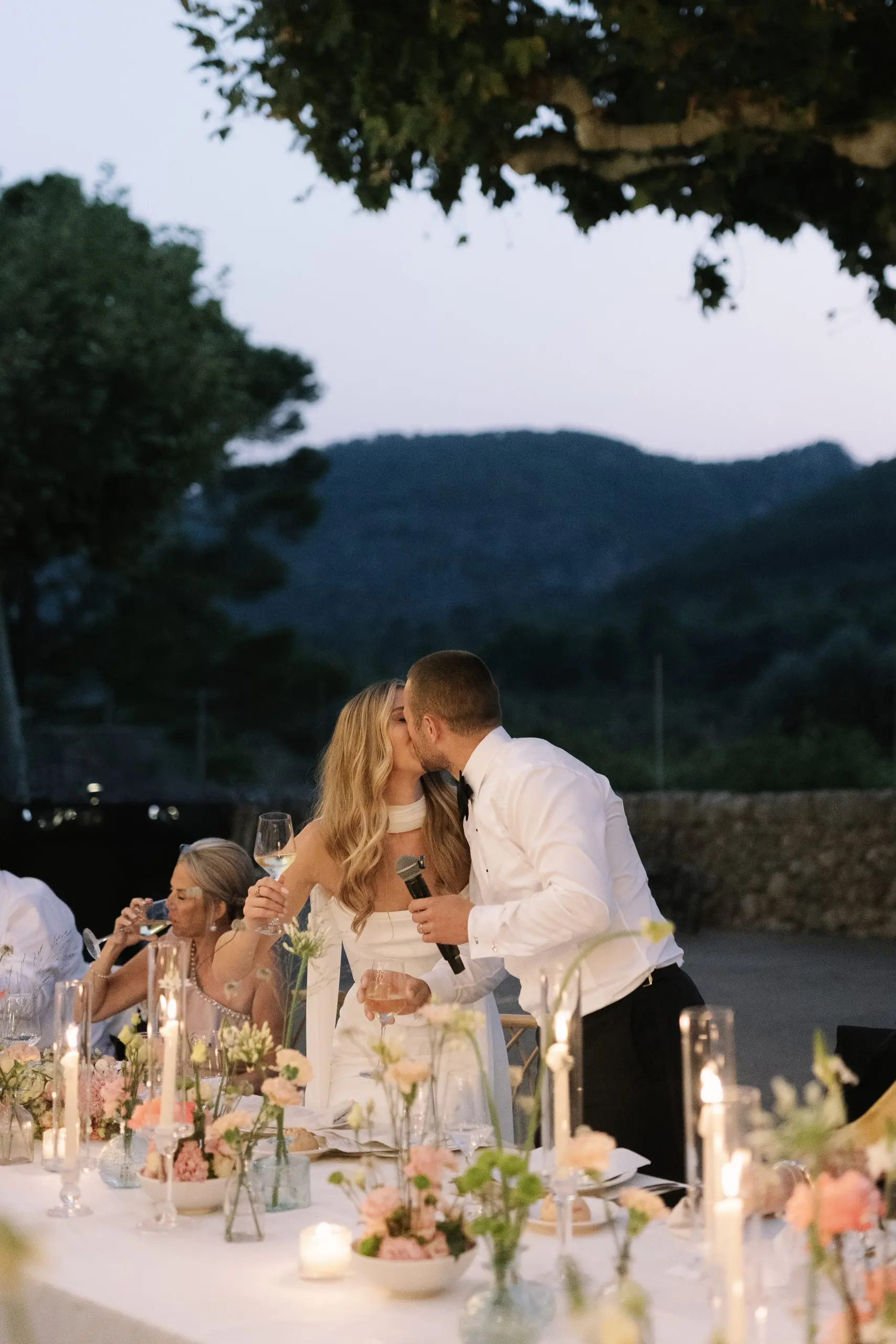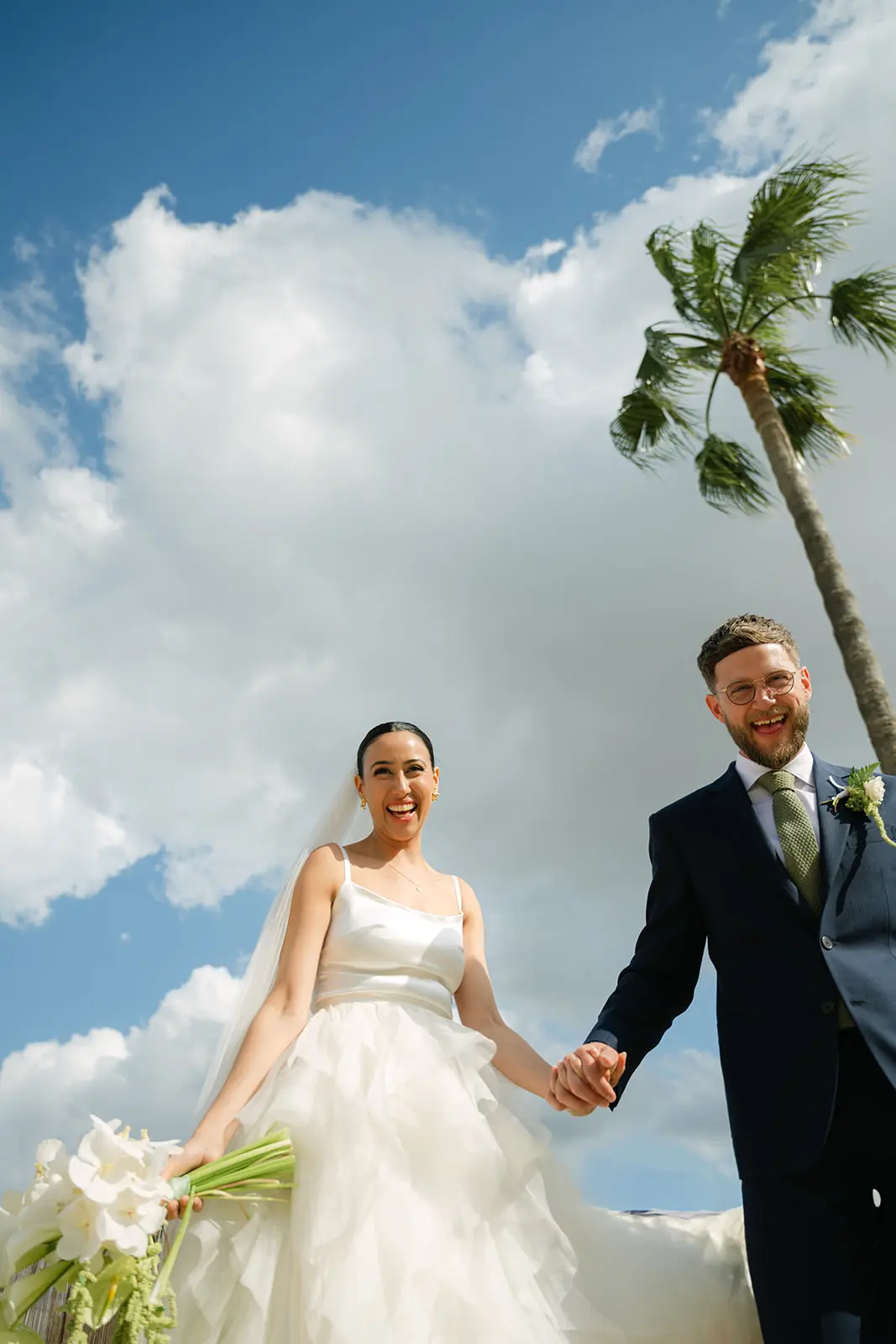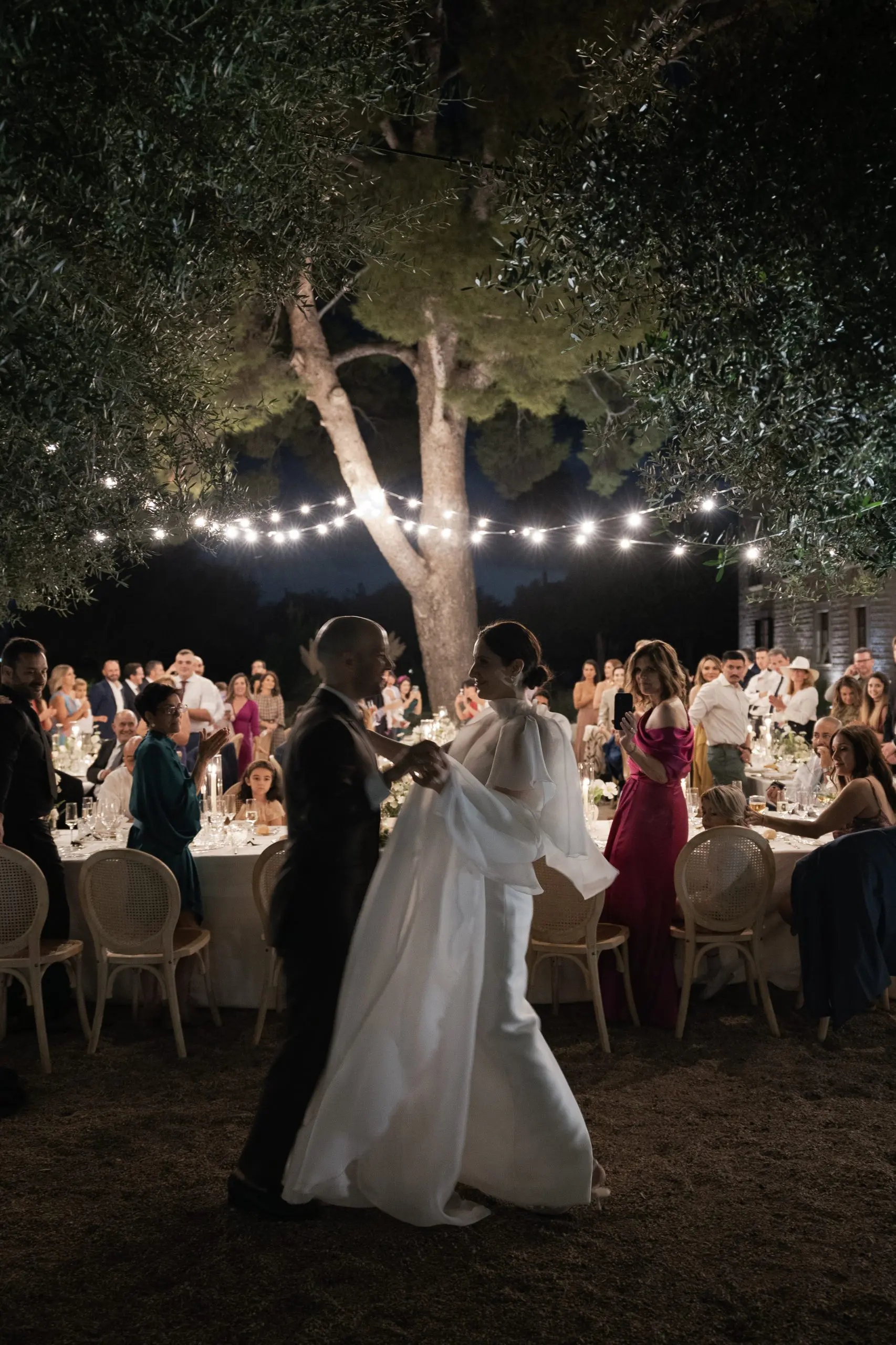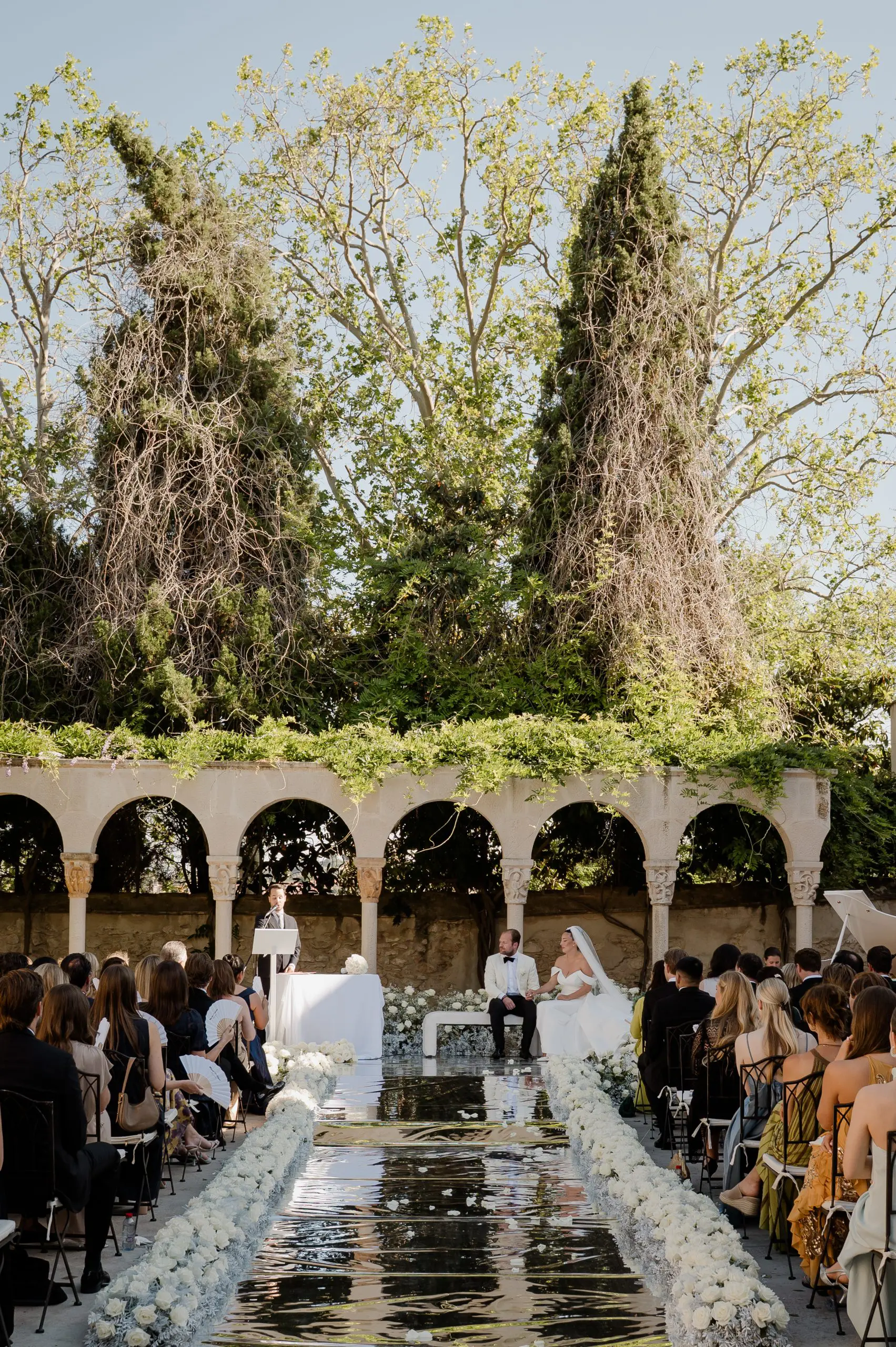14.10.2025 — 12 MIN READ
Catholic Wedding in Spain: Requirements & Tips
For many couples, getting married in a church in Spain is more than just a religious rite — it’s an emotional and cultural experience that blends tradition, spirituality, and the undeniable charm of celebrating love in a country with centuries of Catholic history. But before you dive into planning, it’s essential to understand the requirements for a Catholic wedding in Spain — especially if you’re a foreign couple dreaming of saying “I do” in a Spanish church.
And that’s when the questions arise: What documents do you need? Do you have to be a Spanish resident? How do you process the marriage paperwork from abroad? If you’re wondering the same, don’t worry — this article walks you through everything step by step, from the basic requirements to the little details you won’t always find out at your parish.
(Spoiler alert: getting married in a Catholic church in Spain as a foreigner is absolutely possible — it just takes organization, patience, and good preparation.)

Why So Many Foreign Couples Choose Spain for Their Catholic Wedding
Spain offers much more than beaches, mountains, and sunshine. It’s also one of the countries with the highest number of charming churches and cathedrals in the world. From small rural chapels in Mallorca to majestic basilicas in Madrid or Barcelona, the country breathes history and spirituality.
For many foreign Catholics, celebrating their religious wedding here is a way to live out their faith in a magical setting — surrounded by stunning Spanish architecture and Mediterranean warmth. Plus, the Catholic Church in Spain is very welcoming toward mixed marriages (between a Catholic and a non-baptized or differently-faith partner), as long as the proper requirements are met.
Requirements for a Catholic Wedding in Spain: The Essentials
Let’s start with the basics. The requirements for a Catholic wedding in Spain are the same for Spaniards and foreigners, although in the latter case, there are a few extra steps involving documentation and legalization.
Here are the main requirements:
1. At Least One of You Must Be a Baptized Catholic
The Catholic Church requires that one or both spouses be baptized in the Catholic faith. If one partner isn’t Catholic or isn’t baptized, you can request a special dispensation known as a “dispensation from disparity of cult” or “permission for a mixed marriage”, processed through your local parish priest and the diocesan bishop.
2. No Canonical Impediments
For example, a person who has previously been married in the Church cannot remarry unless an annulment has been granted. Likewise, a Catholic wedding cannot take place if one party has taken religious vows or if a previous civil marriage remains legally valid.
3. Commitment to a Valid and Lifelong Marriage
Both partners must understand and accept the Catholic principles of marriage: fidelity, indissolubility, and openness to life (which doesn’t mean being obliged to have children, but rather valuing family life as the Church teaches).
4. Required Documentation
This is where the paperwork begins — especially important for foreign couples planning a Catholic wedding in Spain.
Documents and Requirements for a Catholic Wedding in Spain as a Foreigner
Each diocese may vary slightly, but generally, these are the documents you’ll need to prepare.
(And yes, it’s best to start early — some papers can take weeks or even months to process.)
1. Baptism Certificate
It must be recent (issued within the last six months) and include a note confirming you haven’t been married before.
You’ll need to request it from the parish where you were baptized. If it’s not in Spanish, it must be translated by a certified translator and legalized with an Apostille of The Hague or by consular means, depending on your country.
2. Birth Certificate
Also recent and, if not in Spanish, officially translated. In many countries, you can request it digitally or in person from the civil registry.
3. Certificate of Singleness or Capacity to Marry
This document proves you’re free to marry. Depending on the country, it may be called a “Certificate of Capacity to Marry” or a “Single Status Certificate.”
It also needs to be apostilled or legalized and translated into Spanish if applicable.
4. Passport or ID
A copy is usually sufficient, although some parishes may ask to see the original during the process.
5. Confirmation Certificate (if available)
Not always mandatory, but if you’ve been confirmed, you’ll need to provide proof. If you haven’t received the sacrament, the priest can guide you through the process before the wedding.
6. Premarital Course Certificate
In Spain, attending a premarital course (in person or online) is required. If you’ve already completed one abroad, you can submit the certificate, but it must be validated by the Spanish parish handling your file.
7. Canonical Marriage Dossier
This is the central document of the process. It’s opened at the parish where one of the spouses resides or is registered.
It includes personal interviews with the priest, witness statements, and the review of all documents. Once completed, it’s sent to the diocese — or, for couples living abroad, to the Apostolic Nunciature of Spain (the Vatican Embassy in Madrid).
How to Process a Catholic Wedding in Spain Step by Step
Here’s a typical timeline for foreign couples planning to get married in a Catholic church in Spain:
Step 1. Contact the Parish
The first step is choosing the church or parish where you wish to hold the ceremony.
If you’re getting married in a cathedral, basilica, or sanctuary, you’ll usually be referred to the corresponding parish, where the marriage file will be processed.
Step 2. Open the Marriage Dossier
The parish priest will conduct an interview (which can often be done online if you’re abroad) and provide a list of required documents.
This file is typically prepared in your home country’s diocese and then sent to Spain with the necessary ecclesiastical approvals.
Step 3. Send and Legalize Documents
Foreign documents must be apostilled under The Hague Convention (if applicable) or legalized by the Spanish embassy and your local church authority.
If the documents are missing an apostille or an official translation, the parish cannot accept them.
Step 4. Validation in Spain
Once the Spanish parish receives your file, the priest reviews everything, confirms the validity of the documents, and authorizes the wedding.
Step 5. The Wedding Day
Finally — the big day!
A Catholic wedding in Spain has the same canonical value as anywhere else, and if processed correctly, it can also have civil effects (meaning you’ll be legally married both in Spain and your home country, depending on each nation’s agreements).
How Long Does It Take to Prepare for a Catholic Wedding in Spain?
There’s no strict rule, but from experience, it’s best to start preparing for your Catholic wedding in Spain 12 to 18 months in advance.
Some dioceses work faster than others when handling permits and international validations.
If you live abroad, you’ll also need to coordinate with your local parish to open the dossier there and send it to Spain with all the seals and signatures. This step is often the most time-consuming.
Does a Catholic Wedding in Spain Have Civil Validity?
Good question — and a common one.
Yes, a Catholic wedding in Spain can have civil effects, but there are two ways to handle it:
- Religious wedding with direct civil effects. The Church communicates the marriage to the Spanish Civil Registry for official inscription.
- Religious-only wedding (canonical). Valid in the Church but not under civil law. In this case, you’ll also need a civil marriage — either in Spain or your home country — for legal recognition.
Most foreign couples choose the first option to avoid holding two separate ceremonies.
Practical Tips for Foreigners Planning a Catholic Wedding in Spain
After organizing dozens of Catholic weddings for international couples, here are some tried-and-true tips to ensure you meet all the Catholic wedding in Spain requirements without stress:
1. Start with the Priest
Before worrying about paperwork, speak directly with the parish priest where you’d like to marry.
He’ll confirm if the church accepts foreign weddings, available dates, and the exact documentation needed.
2. Mind the Deadlines
Many documents have a limited validity period (for example, baptism certificates). Don’t request them too early — or too late.
3. Keep Digital and Physical Copies
Parishes usually require originals, but keeping digital scans can save you trouble in case of loss or delays.
4. Use a Certified Translator
If your documents are in English, French, German, or any other language, they must be officially translated into Spanish by a certified translator. Avoid informal translations — they won’t be accepted.
5. Confirm Civil Validity
Some couples prefer to marry civilly first in their home country to simplify the legal part. Both options are valid — just decide early.
6. Consider a Specialized Wedding Planner
Not mandatory, but incredibly helpful. A wedding planner experienced in religious and international weddings in Spain can coordinate documents, translations, church communication, and of course, all the aesthetics and logistics.
How Much Does a Catholic Wedding in Spain Cost?
The religious ceremony itself doesn’t have a fixed cost. The Church doesn’t charge for the sacrament, although most parishes request a voluntary donation or a fee for use of the church — typically between €200 and €600, depending on the venue.
To this, add the costs for music, flowers, decorations, document translations, and wedding planning services if you hire them.

Final Checklist: Basic Documentation for Foreigners
| Document | Required | Official Translation | Apostille / Legalization |
|---|---|---|---|
| Baptism Certificate | ✅ | ✅ | ✅ |
| Birth Certificate | ✅ | ✅ | ✅ |
| Certificate of Singleness | ✅ | ✅ | ✅ |
| Passport | ✅ | ❌ | ❌ |
| Confirmation Certificate | Optional | ✅ | ✅ |
| Premarital Course | ✅ | Depends | Depends |
| Marriage Dossier | ✅ | ❌ | ✅ |
In Summary
Getting married in a Catholic church in Spain as a foreigner is absolutely possible — and increasingly common.
It simply requires patience, good organization, and ensuring all the Catholic wedding in Spain requirements are properly met.
Spain offers the perfect setting to unite the spiritual with the aesthetic — a chance to celebrate your faith and love in a historic church by the sea, or beneath the soaring arches of a sunlit cathedral.
If this is your dream, start by gathering information early, speak with your local parish, and — to make things stress-free — consider working with a team familiar with guiding foreign couples through this beautiful journey.
✴️ At Bouclé Weddings, we help couples from all over the world fulfill their dream of getting married in Spain — whether in a civil ceremony or a Catholic one. If you’d like guidance on the process or want to explore beautiful churches for your wedding, we’d love to help you make it a reality.
FAQs About Catholic Wedding Requirements in Spain
Can I have a Catholic wedding in Spain without living there?
Yes. You don’t need to reside in Spain to have a Catholic wedding, but you must process your marriage file through your local parish and send it to the Spanish diocese where the wedding will take place. Some churches may ask for a temporary address or local witnesses, but residency isn’t required.
What is the marriage dossier and how long does it take?
The marriage dossier is the set of Church documents confirming that both partners are free to marry and meet all Catholic wedding in Spain requirements. It usually takes between one and three months, depending on your country and diocesan processing time.
Does a premarital course from abroad count?
Yes, as long as it’s issued by an official Catholic parish. However, the Spanish church hosting your wedding must review and approve it. If not accepted, you may need to repeat the course — either online or in person in Spain.
Do I need to apostille or legalize my documents?
Yes. All documents issued outside Spain (baptism, birth, singleness certificates, etc.) must be apostilled with The Hague Apostille or legalized by the Spanish embassy. They must also be translated into Spanish by a certified translator recognized in Spain.
Does a Catholic wedding in Spain have civil validity?
Yes, if registered as a wedding with civil effects. In that case, the Church notifies the Spanish Civil Registry for official registration. Otherwise, it’s valid only religiously, and you’ll need a separate civil marriage.
What if one of us isn’t baptized?
The Church allows mixed marriages (between a Catholic and a non-baptized or non-Catholic), but you’ll need a dispensation for disparity of cult. This is handled by your priest and approved by the bishop — a common and accepted process.
When should we start the paperwork?
Ideally, start 6 to 9 months in advance, especially if you live abroad. This gives you time to gather certificates, apostilles, and translations without stress.
What if my country isn’t part of The Hague Apostille Convention?
In that case, your documents must be legalized through the Spanish embassy and your country’s Ministry of Foreign Affairs. Your local parish or the Spanish consulate can guide you through the process.
